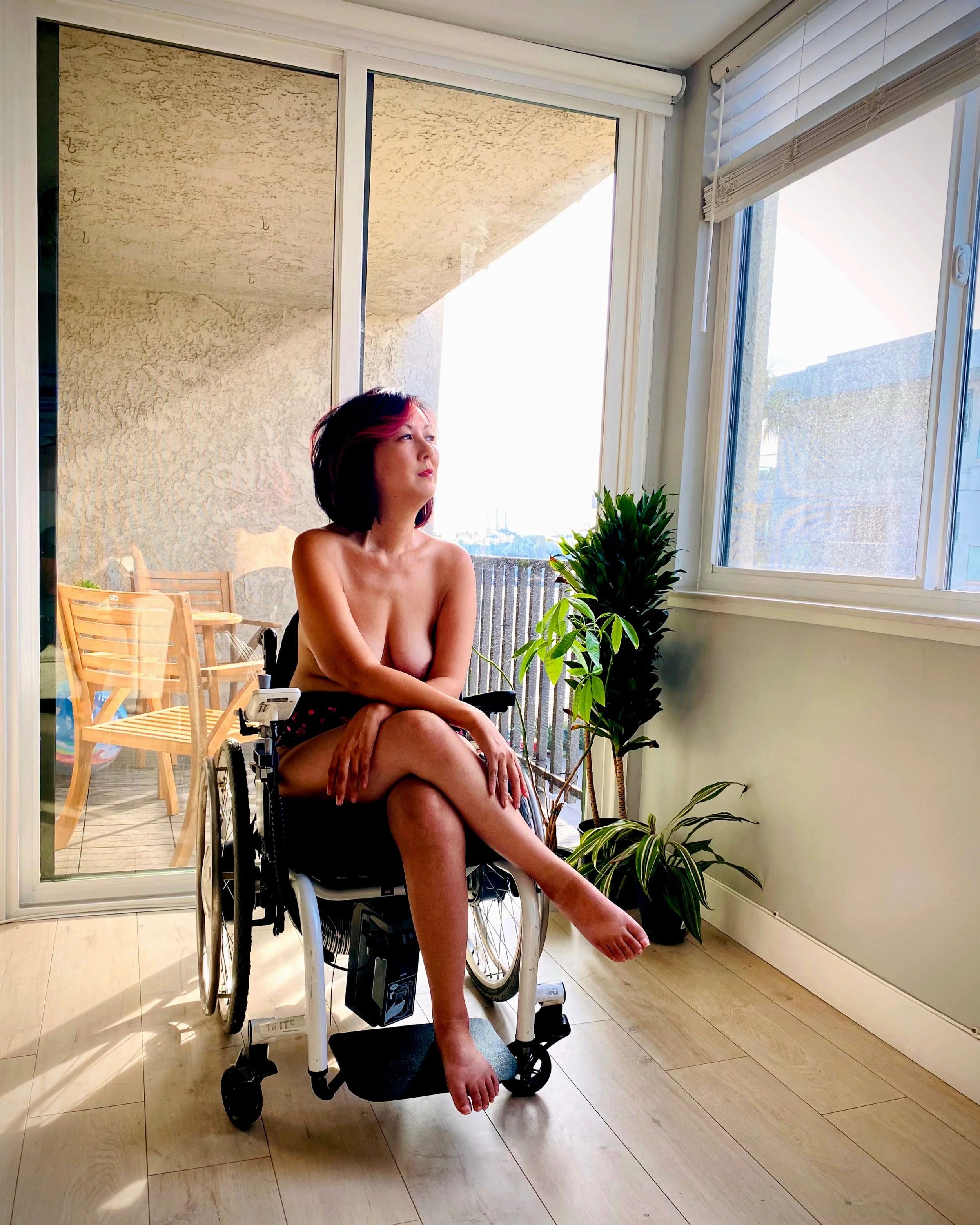What is vulnerability and why is it scary?
Vulnerability comes from Latin vulnus, meaning “wound”. It is the quality of being harmed or the willingness to be hurt.
No one wants to get hurt, and most don’t want to risk further pain by exposing their wounds or perceived weaknesses. This is self-preservation mixed with societal folklore — being vulnerable equals weakness and should be shamed.
A great equalizer between humankind is that in the end we all want connection, which is the point of vulnerability, but there are a list of fears and what-ifs that accompany this act— preventing connection across differences and antiquity.
Historically, vulnerability has been seen as a weakness, and as a terrible reaction to this, we were taught that force equals strength—in which we’ve wandered throughout time, forcing our way via wars and hatred instead of understanding. But force to avoid vulnerability is a facade; a denial of one’s own humanity.
When you’re disabled, vulnerability inevitably surrounds your every move (or lack thereof). You're vulnerable in ways most people don’t have to think of, and if you require a lot of assistance like me, vulnerability comes without a choice or modesty—from required help with all bathroom exchanges to getting dressed to needing help with every single daily act.
When you’re disabled, you worry about your safety while dating or lying in bed at night.
When you’re disabled, you're financially vulnerable because daily living is more expensive, but you’re also a part of the most unemployed minority group.
When you’re disabled, you’re vulnerable under constant medical analysis, as if your body is not your own and more like an anonymous specimen for sterile eyes to gawk at.
When you’re disabled, the world sees your vulnerabilities upfront, or there’s great effort in hiding them—forced to be vulnerable and in need within exchanges. This can be crushing to independent spirits, but it has good takeaways too.
Disability has taught me much about vulnerability—not just physically and existentially but also emotionally—a cornerstone of my advocacy.
I want understanding, not through force, so I’m willing to be open in spite of potential hurt.
As a little orphan new to America and a family, I had a lot of trouble being vulnerable and openly sharing how I felt. My mother would have hours-long talks with me, trying to get me to open up.
'Say something', she'd say.
But I was afraid. I still am. I was an orphan shipped to a new world with so many fears. I was closed.
My convictions always push me to be open for a greater reason and understanding. Today, I'm more afraid of what will happen if I don't share. If I'm not vulnerable.
Vulnerability is scary and difficult. You are exposed in the silent, loud dropping of a facade for all eyes or none to see— the garb we've been taught we need to have in order to assimilate. In order to hide. In order to not be ourselves.
Vulnerability is necessary. It's a feature of our human condition. To be vulnerable is to be human. To be vulnerable, to be empathetic to another's pain (even when it's the enemy), is necessary for human survival - otherwise, it's us we should be afraid of, for without any sense of vulnerability, humans would only act out in despicable outbursts and constant wars—killing each other off with force, void of reason or compassionate interludes.
Disabled or not, we are all vulnerable at any single moment in time. We can die in an instant through an accident or sudden disease, but we'd prefer to pretend we have control over our wounds because if we didn't do this, it would mean admitting our immortality, and this is uncomfortable.
Hiding our vulnerabilities doesn't just throttle connection and understanding with each other, but also with oneself. No matter how we try, there is no hiding of our wounds, only displacement and tantrum-like roarings. Much like a raging war, the lack of vulnerability with oneself causes internal and external destruction, but also the inability to truly connect thus live.
Don't be scared of being vulnerable. Don't be afraid to live. And even if you are scared, be more afraid of not truly living.
For more wheelchair travel adventures, disability and accessibility musings, mini-memoirs and art follow me on at: Instagram @KamRedlawsk

